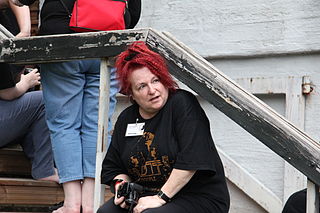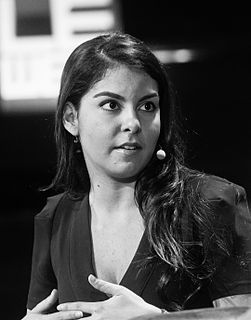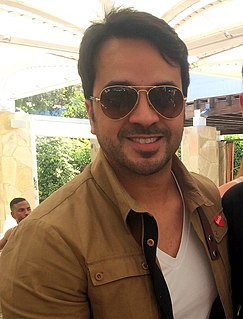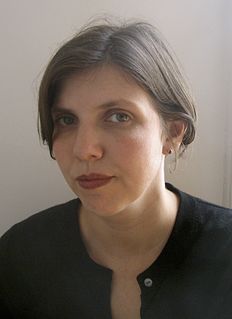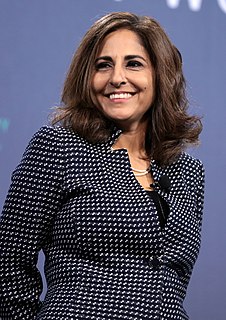A Quote by Pat Cadigan
Most people who are on the inside of a technology have no idea what it's like to look at from an end user's point of view. This is why they have focus groups. I'm really familiar with this because I worked 10 years for Hallmark Cards in the U.S.
Related Quotes
If you look back at history or you look at any place in the world where religious groups or ethnic groups or racial groups or political groups are killing each other, or families have been feuding for years and years, you can see - because you're not particularly invested in that particular argument - that there will never be peace until somebody softens what is rigid in their heart.
It's joyful in that there's another point of view on all things, you know, not just mine. That's why I like to write and collaborate with people. There's another point of view, and when those two things come together, and people work at it really hard, they get something that is the whole is more than the sum of - is that how you say that?
It's crazy because I was 10 years old when 'Macarena' was all over the place, and I remember looking at it from a different point of view. I remember culturally how important that song was, even though people didn't really know what they were saying. It was more about the dance and the movement of it and the cultural side of it.
We don't have great answers to what jobs will look like in 10, 20, 30 years. And I think it's right for people to have some anxiety in a world where driverless cars are going to take over. Like, how are you going - it's gotten really, how are you going to have a job in 10 years, and how are your kids going to have a job in 10 years, if you haven't gone to college or had a lot of hand-ups in the system, basically.
[On how she goes about trying to live authentically] Well really listening to my point of view and if I am on a set, say, that doesn't really value a woman's point of view, regardless of how they feel, continuing to give my point of view and try to find a way to be heard and not diminishing myself because other people are diminishing me. Because that, I think, is the worst temptation that, you know, you judge yourself by how others are judging you, and to fall into that trap is to walk into the realm of self-annihilation.
People should absolutely have a point of view about the political process themselves individually, but we're also at a point in the evolution of capitalism where any one individual's impacts are over estimated because there is enough regulation and guard rails. They may be odious and grotesque in what they say, but the practical day-to-day impacts from a policy perspective tend to be limited because the system made it so. That's why you see a lot of political apathy because people have internalized the inability for anyone either really really good or really really bad to do anything.
But every point of view is a point of blindness: it incapacitates us for every other point of view. From a certain point of view, the room in which I write has no door. I turn around. Now I see the door, but the room has no window. I look up. From this point of view, the room has no floor. I look down; it has no ceiling. By avoiding particular points of view we are able to have an intuition of the whole. The ideal for a Christian is to become holy, a word which derives from “whole.
